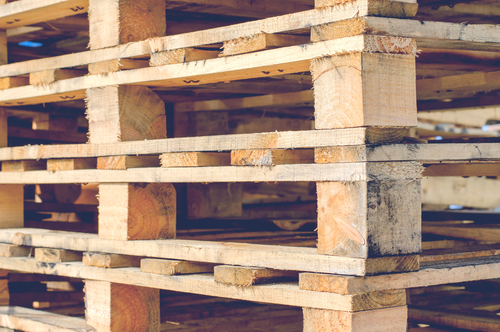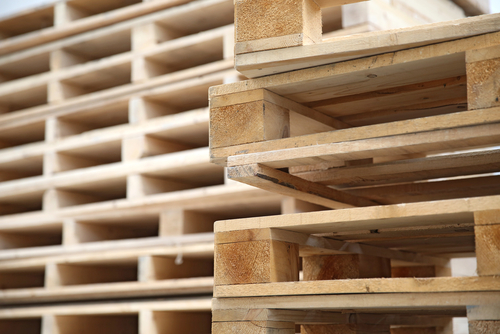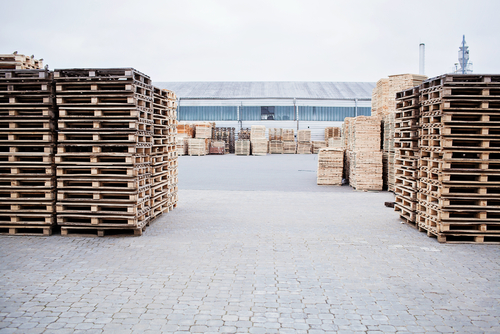If you use pallets to keep your business running smoothly, you need a good supplier to ensure you get a quality product that matches your specific needs. Many companies choose to purchase used pallets. To ensure you purchase what you need, there are several points to educate yourself about when researching a supplier to meet your business’ needs.
Find usable pallets
You need a reliable source for quality pallets in a standard size with a provenance you can trust. The key is finding nice, clean, and damage-free pallets at a reasonable price. You may have required features like full or partial runners, the number of top boards or the thickness of the wood supports. Perhaps your product requires a specific size pallet or one that can transport an overweight item.
Many may think you can obtain pallets for free. Pallets that are stacked behind a business are not necessarily up for grabs. Many shops pay a deposit on pallets and will be charged if they do not return them.
There are several variables in the features of a pallet, considering the footprint, condition and the material from which it was made. You need a reputable, reliable supplier of pallets with the features you need.
What to look for
It’s important to source undamaged, clean, and safe pallets. Since they’re used to transport such a wide variety of products, some are covered in toxic materials or unpleasant sludge.
You might not want to contaminate your shipment with repurposed pallets that carry pesticides from a shipment of chemicals or that smell like fish.
Avoid wooden pallets that are wet, stained with grease or some other unidentifiable remains. Stay away from any pallets with protruding nails and cracked wood.
Even if you think you can repair them, you want to ship your product with the best quality and strongest pallets you can find. Consider the more durable options of plastic or metal pallets. They can provide many years of service.
Lightweight plastic pallets suit almost any shipping need and withstand unpleasant substances without absorption. Welded metal pallets can be made of aluminum or steel and are appropriate for food processing and pharmaceutical applications.
Avoiding contaminants
Pallets from greenhouses are likely to have pesticides or another chemical residue. Pallets that have carried contaminants like gas, grease, or oil might be unsuitable. They can be smelly, oily, or stained with questionable substances.
Some pallets are stamped with indicators of what they have previously carried, but not all have markings. If you’re sourcing pallets from the back of someone else’s business, you may end up with a microscopic substance that you don’t anticipate. Chemicals and bacteria can both seep into the porous wood, so it’s best to avoid anything suspect.
Remember that stains from oil and petroleum products are nearly impossible to remove from wood. Even painting over them isn’t successful, as the oil will leak through the paint.
Key to understanding stamps
Pallet wood is intended to provide safe, sturdy transport.
Regulations require pallet manufacturers in Canada and the U.S. to treat the wood before shipping. This can be done with chemicals or heat. Treated wood often appears darker in color and carries a stamp, but only if was made after 2005. Treating the wood is intended to prevent the international transport and spread of disease and insects that could affect ecosystems.
Pallets treated in this way have this mark, known as the “wheat stamp.” The wheat stalk icon indicates that it was a food-carrying pallet.
HT or MB designates a treated pallet. HT means the pallet was heat treated to a core temperature of 140 degrees for a minimum of 30 minutes. A stamp with the letters MB indicates the pallet was treated with methyl bromide. Either method of treatment kills insects and larvae. It also eliminates any chemical or food residue that may remain from prior use. After being properly treated, whether by heat or chemically, the pallet can be used and reused to ship goods internationally.
Heat treated pallets weigh less due to the reduction of moisture content in the wood. This reduces shipping costs and ensures your package is safe from cross contamination and free to travel across continents.
Plastic and metal pallets do not require treatment before being shipped internationally.
Reliable sourcing
With so many variables, don’t leave your business dependent upon someone else’s recycling. Choosing the size, boards, weight capacity, and safe provenance of something that literally supports your product is important. Look for a reliable source of pallets that meet your transport requirements and can deliver them when needed at a reasonable price.

